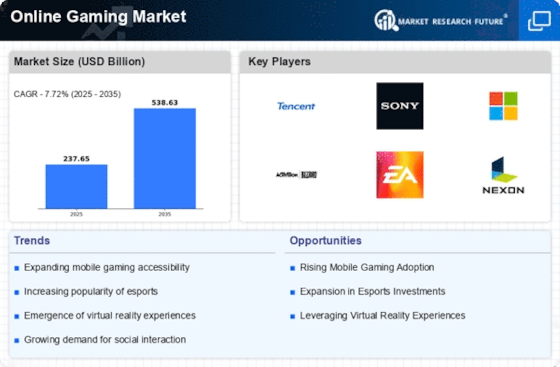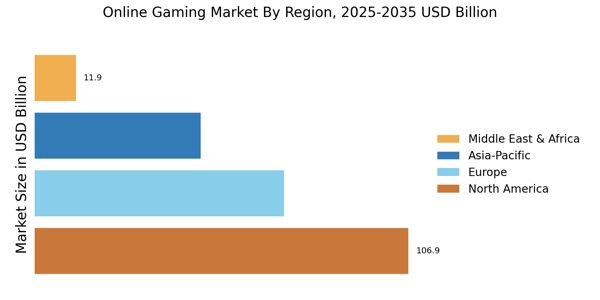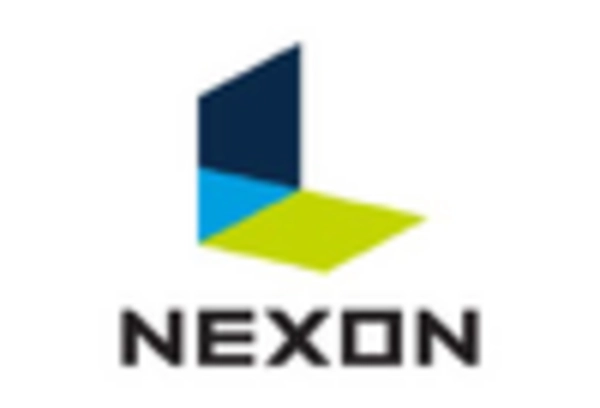Advancements in Technology
The Online Gaming Market is experiencing rapid advancements in technology, which significantly enhances user experience. Innovations such as virtual reality (VR) and augmented reality (AR) are becoming increasingly prevalent, allowing players to immerse themselves in interactive environments. According to recent data, the VR gaming market is projected to reach approximately 12 billion USD by 2025, indicating a strong trend towards more engaging gaming experiences. Additionally, improvements in graphics and processing power enable developers to create more complex and visually stunning games. This technological evolution not only attracts new players but also retains existing ones, thereby driving growth in the Online Gaming Market.
Rise of Competitive Gaming
The Online Gaming Market is witnessing a notable rise in competitive gaming, often referred to as esports. This phenomenon has transformed gaming into a spectator sport, attracting millions of viewers and participants alike. As of 2025, the esports market is projected to surpass 1.5 billion USD, highlighting its growing significance. Major tournaments and leagues are now commonplace, offering substantial prize pools and sponsorship opportunities. This competitive landscape not only fosters a sense of community among players but also encourages game developers to create titles that cater to competitive play. The rise of esports is likely to further propel the Online Gaming Market, as it draws in new audiences and enhances the overall gaming ecosystem.
Diverse Monetization Models
The Online Gaming Market is characterized by a variety of monetization models that cater to different player preferences. Free-to-play games, which often incorporate in-game purchases, have gained immense popularity, allowing players to access games without upfront costs. This model has proven effective, with reports indicating that free-to-play games account for over 80% of the total revenue in the mobile gaming sector. Additionally, subscription-based models and pay-to-play games continue to thrive, appealing to dedicated gamers seeking premium experiences. The diversity in monetization strategies not only attracts a wider audience but also ensures a steady revenue stream for developers, thereby fueling growth in the Online Gaming Market.
Increased Internet Penetration
The Online Gaming Market benefits from the continuous increase in internet penetration across various regions. As of 2025, it is estimated that over 60% of the world's population has access to the internet, facilitating a larger audience for online gaming platforms. This accessibility allows players from diverse backgrounds to engage in gaming, thus expanding the market. Furthermore, the rise of high-speed internet connections enables smoother gameplay and reduces latency, enhancing the overall gaming experience. Consequently, this trend is likely to contribute to the sustained growth of the Online Gaming Market, as more individuals are drawn to online gaming.
Growing Popularity of Streaming Platforms
The Online Gaming Market is significantly influenced by the growing popularity of streaming platforms such as Twitch and YouTube Gaming. These platforms provide gamers with the opportunity to showcase their skills and connect with audiences worldwide. As of 2025, it is estimated that over 15 million daily active users engage with gaming content on these platforms, creating a vibrant community around online gaming. This trend not only promotes games but also encourages new players to join the gaming community. The synergy between gaming and streaming is likely to enhance the visibility of various games, thereby driving engagement and growth within the Online Gaming Market.

















